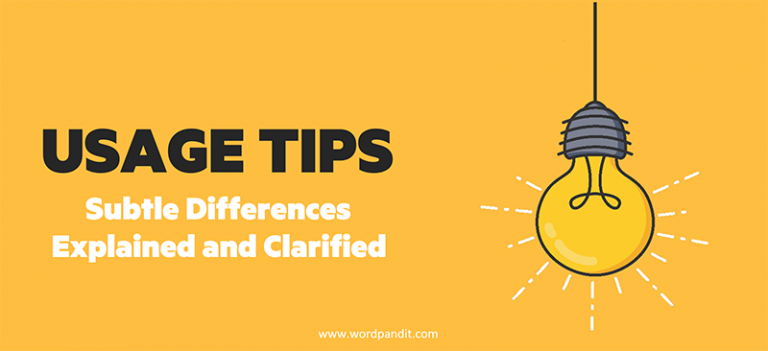Clarifying Confusing Word Pairs: Exceptionable vs. Exceptional ✨
Introduction 📝
Ever come across a situation where you thought something was “exceptional” but someone corrected you to say it was “exceptionable”? 🤔 These two words look strikingly similar, but they have entirely different meanings. Understanding the difference between “exceptionable” and “exceptional” can save you from awkward misunderstandings, especially in formal conversations. 🤷♂️ Imagine complimenting someone on their “exceptionable” skills—ouch! 😬 Let’s dive into these two easily confused words and make sure you can use them with confidence! 💡 Knowing the distinctions will not only improve your vocabulary but also make you a more effective communicator. 📈
Detailed Explanation of Each Word 📚
Definition 📖
- Exceptionable: Something that is objectionable or open to criticism. ❌ If something is exceptionable, it means people are likely to take offense or raise concerns about it.
- Exceptional: Something that is outstanding, remarkable, or unusual in a positive way. 🌟 When something is exceptional, it stands out for being truly impressive or above the norm.
Pronunciation 🔊
- Exceptionable: ik-SEP-shuh-nuh-buhl 🗣️ Break it down slowly, and you’ll notice the emphasis on “SEP.” This can help you remember that it’s related to something being unacceptable.
- Exceptional: ik-SEP-shuh-nuhl 🗣️ Notice how this one sounds similar, but it’s smoother—almost like the positive connotation it carries.
Etymology 🏛️
- Exceptionable: Originates from the late Latin word excipere, meaning “to take out.” It evolved to imply something that can be taken exception to, or objected against. ⚖️ Over time, the word came to mean anything that might be found objectionable or worthy of criticism, giving it a distinctly negative connotation. 🚫
- Exceptional: Also derived from the Latin excipere, but it took a different route to mean something that stands out or is an exception in a positive way. 🌠 This positive deviation gives “exceptional” its meaning of something beyond the ordinary, often in a praiseworthy manner. 💯
Usage Examples ✍️
- Exceptionable: “The manager’s behavior was highly exceptionable, leading to several complaints.” 🙅♂️ In this case, “exceptionable” indicates that the behavior was offensive and not acceptable to others.
- Exceptional: “Her performance was exceptional, earning her a standing ovation.” 👏 Here, “exceptional” is used to praise someone for doing something remarkably well.
Synonyms & Antonyms 🔄
- Exceptionable:
- Synonyms: Objectionable, Offensive, Unacceptable 🚫
- Antonyms: Acceptable, Unobjectionable, Agreeable ✅
- Exceptional:
- Synonyms: Remarkable, Outstanding, Extraordinary 🌟
- Antonyms: Average, Mediocre, Commonplace 😐
Comparison and Contrast ⚖️
The key difference lies in the tone of each word. Exceptionable has a negative connotation, implying something is objectionable or worth criticizing. Exceptional, on the other hand, is positive, indicating something is outstanding or superior. ✨ Mixing these up can lead to a confusing message—imagine telling someone their work is “exceptionable” when you meant to praise it! 😬 It’s essential to be clear about which word you intend to use, as they carry opposing sentiments. When you say something is “exceptional,” you’re acknowledging its excellence. When you call something “exceptionable,” you’re pointing out a flaw or something objectionable. Think of “exceptionable” as a red flag 🚩 and “exceptional” as a gold star 🌟.
Contextual Usage 💬
“The teacher found the student’s disrespectful comments to be exceptionable, while the rest of the class saw his academic skills as truly exceptional.” 👨🏫📚 Here, the two words are used to highlight contrasting qualities in the same person. The teacher was offended by the comments, finding them unacceptable (exceptionable), but the student’s academic performance was beyond impressive (exceptional).
Another example to illustrate the difference: “The report was full of exceptionable remarks that could offend readers, but the data analysis itself was exceptional.” In this sentence, you can see how the same work can have parts that are objectionable and others that are praiseworthy.
Mnemonic Devices 🧠
- Exceptionable: Think of “taking exception” to something; if something is exceptionable, you want to object to it. 🚫 The word itself suggests that it is something people will not accept.
- Exceptional: Remember the “A+” in exceptional – it stands for something remarkable or extraordinary. 🅰️✨ Just like an A+ grade, “exceptional” means something that stands above the rest.
Related Words 🔗
- Acceptable vs. Exceptionable: Another pair that deals with what is permissible versus objectionable. ✅❌ If something is acceptable, it’s allowed; if it’s exceptionable, it raises concerns.
- Exemplary vs. Exceptional: Both positive but nuanced in their differences—worth exploring next! 🤓 “Exemplary” means serving as a desirable model, while “exceptional” simply means better than the norm.
Conclusion 🏁
By now, you should have a clear understanding of the difference between exceptionable and exceptional. 😊 Remember, one is about objection (exceptionable), and the other is about excellence (exceptional). Keep these distinctions in mind, and you’ll never confuse the two again! 💪✨ Whether you are writing a formal report, delivering feedback, or simply trying to compliment someone, understanding these nuances can make all the difference. So next time, be sure to avoid any “exceptionable” remarks and instead aim for “exceptional” praise! 🌟
Test Your Knowledge: Exceptionable vs. Exceptional Quiz 📝🧠
1. The customer found the restaurant’s service to be quite ___, as they were very rude. 😠
2. Her efforts were ___ and deserved every bit of recognition. 🌟
3. Exceptionable means something that is highly remarkable. ❌
4. Match the synonym to the correct word:
5. The report contained several ___ points that needed addressing before submission. 📝
6. Which word would you use to describe a performance that stood out in an amazing way? 🎭
7. While the presentation was ___, the content had some ___ points that needed revision. ✍️📑
8. Which word has its origins in Latin meaning ‘to take exception to’? 🏛️
9. The word ‘exceptional’ can be used to describe something objectionable. ❌
10. The critics found the movie to be ___, yet many agreed that the lead actor’s performance was ___.” 🎥🌟













